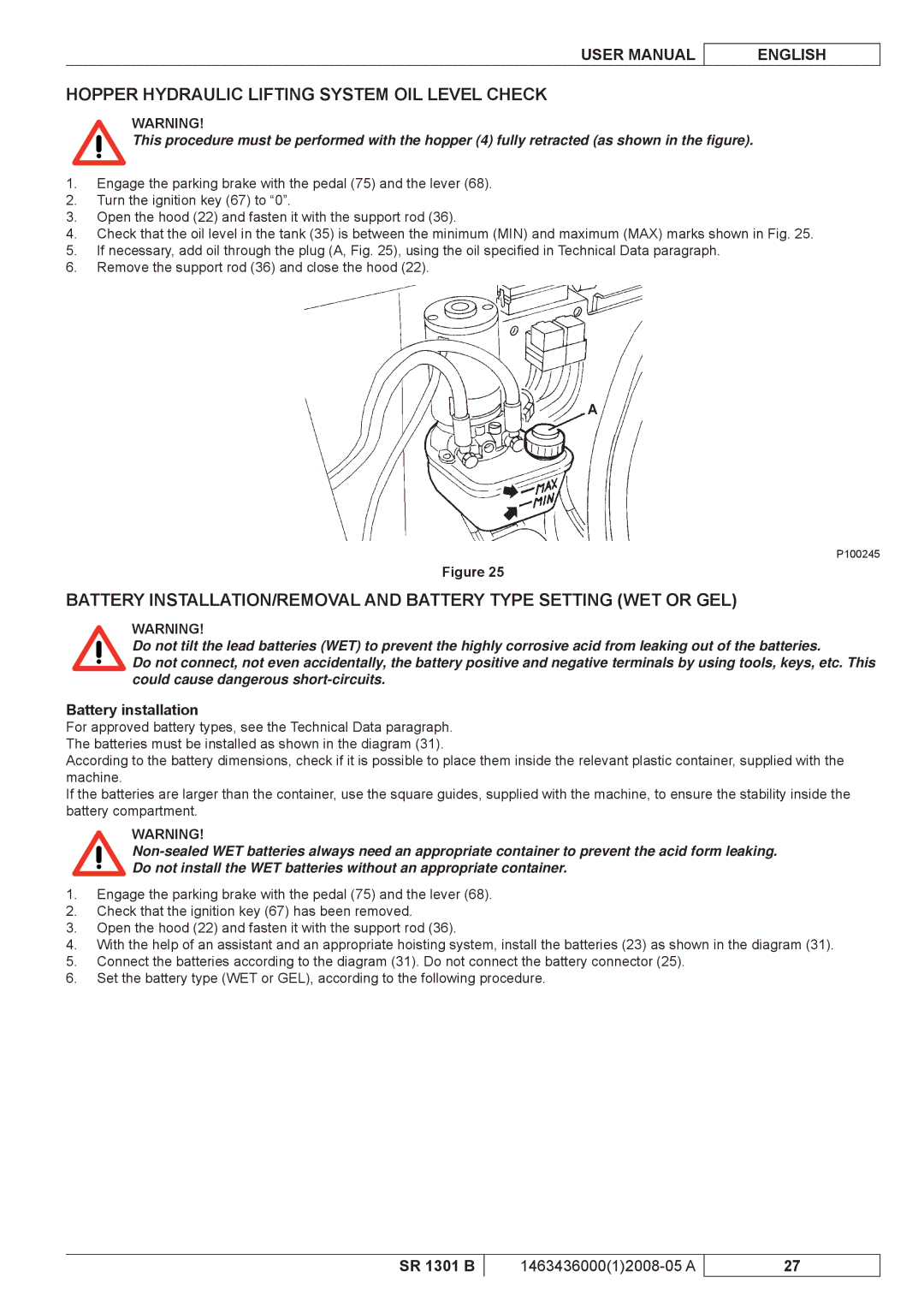
USER MANUAL
ENGLISH
HOPPER HYDRAULIC LIFTING SYSTEM OIL LEVEL CHECK
WARNING!
This procedure must be performed with the hopper (4) fully retracted (as shown in the figure).
1.Engage the parking brake with the pedal (75) and the lever (68).
2.Turn the ignition key (67) to “0”.
3.Open the hood (22) and fasten it with the support rod (36).
4.Check that the oil level in the tank (35) is between the minimum (MIN) and maximum (MAX) marks shown in Fig. 25.
5.If necessary, add oil through the plug (A, Fig. 25), using the oil specified in Technical Data paragraph.
6.Remove the support rod (36) and close the hood (22).
P100245
Figure 25
BATTERY INSTALLATION/REMOVAL AND BATTERY TYPE SETTING (WET OR GEL)
WARNING!
Do not tilt the lead batteries (WET) to prevent the highly corrosive acid from leaking out of the batteries.
Do not connect, not even accidentally, the battery positive and negative terminals by using tools, keys, etc. This could cause dangerous
Battery installation
For approved battery types, see the Technical Data paragraph. The batteries must be installed as shown in the diagram (31).
According to the battery dimensions, check if it is possible to place them inside the relevant plastic container, supplied with the machine.
If the batteries are larger than the container, use the square guides, supplied with the machine, to ensure the stability inside the battery compartment.
WARNING!
1.Engage the parking brake with the pedal (75) and the lever (68).
2.Check that the ignition key (67) has been removed.
3.Open the hood (22) and fasten it with the support rod (36).
4.With the help of an assistant and an appropriate hoisting system, install the batteries (23) as shown in the diagram (31).
5.Connect the batteries according to the diagram (31). Do not connect the battery connector (25).
6.Set the battery type (WET or GEL), according to the following procedure.
SR 1301 B
27
